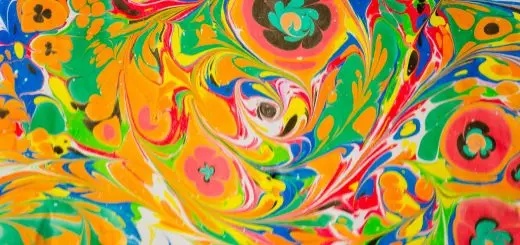Mind-Body Connection in Holistic Healing

Looking for more amazing products? Check out our online store and explore our collection here! Happy shopping!
Before diving in, please note: This post is for informational purposes only. If you’d like to know more about how we approach topics, feel free to check out our friendly Disclaimer Page.
Hey there, amazing readers! 
We’re committed to delivering quality posts, and your support (even just sticking around despite the ads) means everything to us. So, bear with us, and thanks for helping us keep the good vibes rolling. Now, on to the fun stuff!
TRANSLATE BUTTON AT THE END OF THE ARTICLE
A Quick Overview
The mind-body connection in holistic healing is a powerful concept that emphasizes the interrelation between our mental, emotional, and physical well-being.
Holistic healing approaches health and wellness by considering the whole person, not just individual symptoms or parts of the body.
By recognizing that the mind and body are interconnected, holistic healing aims to promote balance and harmony to achieve overall health.
In this article, we will delve into the various aspects of the mind-body connection in holistic healing, exploring how emotions, thoughts, stress, movement, nutrition, and spiritual practices play a vital role in maintaining well-being.
Exploring the Mind-Body Connection
The mind-body connection refers to the link between our thoughts, feelings, beliefs, and physical health.
This connection recognizes that our mental and emotional states can influence our physical well-being and vice versa.
When we experience stress, anxiety, or negative emotions, it can manifest in physical symptoms such as headaches, muscle tension, or digestive issues.
Similarly, chronic physical conditions can impact our mental health, leading to feelings of depression, frustration, or hopelessness.
Understanding this connection is key to holistic healing, as it allows us to address both the mental and physical aspects of our health.
Understanding Holistic Healing
Holistic healing is a comprehensive approach to health that considers the whole person—body, mind, spirit, and emotions—in the quest for optimal well-being.
Unlike conventional medicine, which often focuses on treating symptoms or specific ailments, holistic healing looks at the root causes of illness and seeks to restore balance to the entire system.
This approach may include a combination of alternative therapies, lifestyle changes, self-care practices, and mind-body techniques to promote healing from within.
Holistic healing emphasizes the importance of treating the individual as a whole, rather than just addressing isolated symptoms.
The Role of Emotions in Healing
Emotions play a significant role in the healing process, as they can impact both our mental and physical well-being.
Positive emotions, such as joy, love, and gratitude, have been shown to boost the immune system, reduce stress levels, and improve overall health.
On the other hand, negative emotions, such as anger, fear, and sadness, can weaken the immune system, increase inflammation, and contribute to chronic illness.
By acknowledging and processing our emotions, we can release emotional blockages, reduce stress, and create a more harmonious internal environment conducive to healing.
How Thoughts Affect Physical Health
Our thoughts have a profound impact on our physical health and well-being.
Negative thought patterns, such as self-criticism, worry, or pessimism, can trigger stress responses in the body, leading to increased cortisol levels, inflammation, and immune system suppression.
On the other hand, positive thoughts and beliefs can promote relaxation, reduce anxiety, and enhance the body’s natural healing mechanisms.
By cultivating a positive mindset through practices like affirmations, gratitude, and mindfulness, we can support our physical health and overall well-being.
Techniques for Balancing Mind and Body
There are various techniques that can help balance the mind and body, promoting overall health and wellness.
Some effective methods include:
Yoga: Combining physical postures, breathing exercises, and meditation, yoga helps harmonize the mind and body, reducing stress and promoting relaxation.
Acupuncture: This ancient Chinese practice involves inserting thin needles into specific points on the body to restore the flow of energy, or qi, promoting healing and balance.
Massage therapy: By manipulating the body’s soft tissues, massage therapy can alleviate muscle tension, reduce stress, and improve circulation, fostering a sense of well-being.
Tai chi: A gentle form of martial arts, tai chi combines slow, flowing movements with deep breathing and mindfulness to promote balance, flexibility, and relaxation.
By incorporating these techniques into your daily routine, you can enhance the mind-body connection and support your overall health.
The Power of Meditation and Mindfulness
Meditation and mindfulness are powerful practices that can help cultivate awareness, reduce stress, and enhance overall well-being.
Meditation involves focusing the mind and calming the body through techniques like deep breathing, visualization, or mantra repetition.
Explore the Path to Spirituality and Enlightenment – Start Here.
Mindfulness, on the other hand, involves being fully present in the moment, observing thoughts and sensations without judgment.
Both practices can help quiet the mind, reduce anxiety, and promote a sense of inner peace and clarity.
The Influence of Stress on Health
Stress is a significant factor that can impact both mental and physical health.
Chronic stress can weaken the immune system, increase inflammation, raise blood pressure, and contribute to a host of health problems, including heart disease, diabetes, and depression.
By managing stress through relaxation techniques, mindfulness practices, exercise, and self-care activities, we can reduce its detrimental effects on the body and mind.
It is essential to recognize the signs of stress and take proactive steps to mitigate its impact on our overall health.
Connecting with Your Inner Self
Connecting with your inner self is an essential aspect of holistic healing, as it allows you to tap into your intuition, wisdom, and inner resources for healing and guidance.
Practices such as journaling, meditation, nature walks, and creative expression can help you deepen your self-awareness, cultivate self-compassion, and develop a stronger sense of inner peace and resilience.
By nurturing your relationship with yourself, you can enhance your well-being and foster a deeper connection to your mind, body, and spirit.
Incorporating Movement into Healing
Movement is a vital component of holistic healing, as it not only benefits physical health but also supports mental and emotional well-being.
Engaging in regular exercise, whether through yoga, walking, dancing, or other activities, can improve circulation, boost mood, reduce stress, and enhance overall vitality.
Movement helps release endorphins, the body’s natural feel-good chemicals, promoting a sense of well-being and relaxation.
By incorporating movement into your daily routine, you can support the mind-body connection and promote holistic healing.
Nutrition and its Impact on Wellbeing
Nutrition plays a crucial role in holistic healing, as the foods we eat directly impact our physical health, mental clarity, and emotional well-being.
A diet rich in whole, nutrient-dense foods, such as fruits, vegetables, whole grains, and lean proteins, can provide essential vitamins, minerals, and antioxidants that support overall health.
Conversely, a diet high in processed foods, sugar, and unhealthy fats can lead to inflammation, fatigue, and imbalances in the body.
By nourishing your body with healthy, whole foods, you can support your immune system, improve energy levels, and enhance your overall well-being.
Spiritual Practices for Holistic Healing
Spiritual practices can be a powerful tool for holistic healing, as they help cultivate a sense of connection, purpose, and inner peace.
Whether through prayer, meditation, mindfulness, or community rituals, spiritual practices can provide comfort, guidance, and solace during challenging times.
Connecting with a higher power, nature, or inner wisdom can help you access a source of strength and resilience that transcends the physical realm.
By incorporating spiritual practices into your daily routine, you can deepen your sense of well-being and foster a greater connection to the world around you.
Building a Holistic Health Routine
Building a holistic health routine involves integrating various practices and strategies that support your overall well-being.
Some key components of a holistic health routine include:
Regular exercise: Engaging in physical activity that you enjoy, such as walking, yoga, or dancing, can boost mood, reduce stress, and support overall health.
Mindfulness practices: Incorporating meditation, deep breathing, or mindfulness exercises into your daily routine can help cultivate awareness, reduce stress, and enhance mental clarity.
Healthy nutrition: Eating a balanced diet rich in whole foods can provide essential nutrients that support physical health, mental focus, and emotional well-being.
Self-care activities: Taking time for self-care, whether through journaling, reading, or spending time in nature, can help you recharge, relax, and nurture your mind, body, and spirit.
By creating a holistic health routine that addresses your physical, mental, emotional, and spiritual needs, you can cultivate balance, harmony, and well-being in all aspects of your life.
Conclusion
The mind-body connection in holistic healing offers a comprehensive approach to health and wellness, recognizing the intricate interplay between our mental, emotional, and physical well-being.
By understanding how emotions, thoughts, stress, movement, nutrition, and spiritual practices impact our health, we can cultivate a deeper sense of balance, harmony, and vitality.
Through practices like meditation, yoga, mindfulness, and healthy nutrition, we can support the mind-body connection and promote holistic healing from within.
By embracing a holistic approach to health, we can nurture our mind, body, and spirit, and enhance our overall well-being.

The Enlightenment Journey is a remarkable collection of writings authored by a distinguished group of experts in the fields of spirituality, new age, and esoteric knowledge.
This anthology features a diverse assembly of well-experienced authors who bring their profound insights and credible perspectives to the forefront.
Each contributor possesses a wealth of knowledge and wisdom, making them authorities in their respective domains.
Together, they offer readers a transformative journey into the realms of spiritual growth, self-discovery, and esoteric enlightenment.
The Enlightenment Journey is a testament to the collective expertise of these luminaries, providing readers with a rich tapestry of ideas and information to illuminate their spiritual path.
Our Diverse Expertise
While our primary focus is on spirituality and esotericism, we are equally passionate about exploring a wide range of other topics and niches 

To ensure we provide the most accurate and valuable insights, we collaborate with trusted experts in their respective domains 
Our blog originally focused on spirituality and metaphysics, but we’ve since expanded to cover a wide range of niches. Don’t worry—we continue to publish a lot of articles on spirituality! Frequently visit our blog to explore our diverse content and stay tuned for more insightful reads.
Hey there, amazing reader! 
Check out our store here and take a peek at some of our featured products below! Thanks for being awesome!













